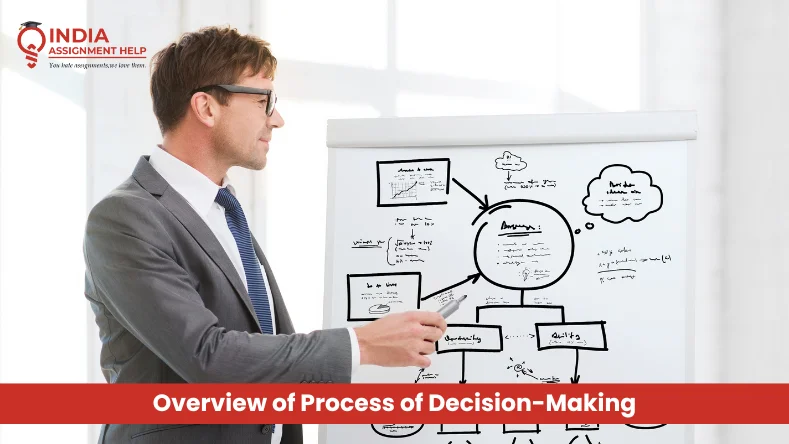Get a Detailed Overview of Process of Decision-Making

Decision-making is one of the crucial aspects of an organization and the personal lives of individuals. This influences the personal, professional and societal trajectories, so students must grasp their understanding carefully and dedicatedly. They can seek a process of decision-making assignment to help experts to get enhanced learning about it. As a person, we must constantly confront the choices that demand careful decision-making so let’s keep reading to know more about it.
How to Identify the Need for Decision?
The first significant step in making decisions is identifying the need for a decision. This involves identifying the problem opportunity or a situation that requires resolution or action. The clarity of the requirement sets the process for subsequent steps, ensuring that the process of decision-making is targeted and purposeful.
What is an Ethical Decision-Making Process?
Ethical decision-making is integral to fulfilling an organisation's desired target or goal. The managerial decision-making process and abilities add value to each project completion step, bringing it closer to the goal or success and enhancing profits. So, the process should be well defined and must include the following steps.
1) Defining Objective
After setting the objective, the next step includes proper and precise decision-making for its achievement. That is what we aim for through this decision, marking the goals in providing a benchmark against which alternative options can be measured. Objectives act as a guiding principle, aligning the decision with broader aspirations and desired outcomes. Students finding complexity in the topic can seek the process of decision-making assistance.
2) Gathering the information
Making a proper and informed decision depends on the availability of the relevant information for the decision. Gathering the information involves gathering data, conducting research, and asking for inputs from various sources, which helps a comprehensive understanding of the problem. Students can read decision-making process examples to understand every step and draft effectively in their assignments.
3) Identifying Alternatives
In order to avoid any kind of risk in the project completion process, the decision-making process management must identify a clear alternative that would work well if anything goes wrong. Thinking differently or creatively comes to the fore as decision making gets a variety of range of alternatives. This step involves brainstorming and exploring various options to address the identified issues.
4) Evaluating the Alternatives
The central part of the decision-making process is evaluating the alternatives. Here, the individual deciding should go through the benefits and drawbacks of each identified alternative to work on it further. This requires carefully analyzing the potential resources and drafting a purchase decision-making process if there is any resource shortage, and it is mandatory to implement the plan.
5) Making a Decision
After a proper evaluation of the alternatives, the decision-maker should choose the best decision and work for the development and growth of the organization.
6) Implementing the Decision
After making the best decision, the next step is implementing the decision. This process involves implementing the chosen plan practically. So, the management must assign the task, allocate resources wisely, and, most importantly, communicate the decision to the organization or company stakeholders.
7) Monitoring and Evaluation
After implementing the decision, they need to monitor the effectiveness of the decision and its outcomes. This process allows them to identify the loopholes, if any, from the expected results. It provides an opportunity for adjustments, monitoring, and evaluation, contributing to a continuous learning process and refining decision-making skills for the future.
Conclusion
The decision-making process is a dynamic and iterative journey that demands a blend of rationality, creativity, and adaptability. The systematic approach outlined here is a valuable guide when faced with personal choices or complex organizational decisions. As students navigate the complexities of the decision-making process, they find it more challenging and technical. Currently, seeking the India Assignment Help experts and availing their services can be the best choices as they align to fulfil student academic requirements and contribute to positive outcomes.





